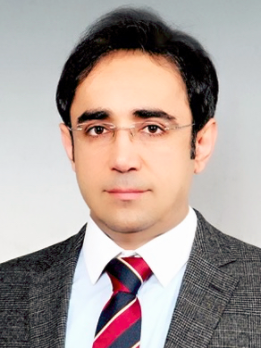
Prof. Jizhong Zhu | IET Fellow, IEEE Fellow
South China University of Technology, China
Research Area: Integrated smart energy system, power system operation and control, smart grid, renewable energy application, energy management system
Title: Research of Power System Operation based on Artificial Intelligence and Big Data Analysis
Abstract: This presentation first introduces the basics of artificial intelligence and big data. Then the characteristics and differences between model driven and data driven are analyzed. Furthermore, two technologies are discussed. They are analysis and prediction technology based on artificial intelligence and operation research optimization technology based on data drive. At last, these two technologies are applied to solve the operation problems of power systems, such as power load forecasting, wind power or solar power forecasting, as well as power system optimal dispatch. Some simulation results of power system operation based on artificial intelligence and big data analysis are presented and discussed.

Prof. Md. Jalil Piran
Sejong University, Seoul, South Korea
Research Area: Machine learning in wireless communications, Resource allocation and management in wireless networks, HetNets, and IoT Multimedia communication, streaming, adaptation, and QoE
Title: Wireless communications meets artificial intelligence; towards 6G
Abstract: According to exposing the inherent constraints of the fifth-generation of the cellular network (5G) and the emerging applications and services with stringent requirements (e.g. latency, energy/bit, traffic capacity, peak data rate, and reliability), telecom researchers are turning their attention to conceptualize the next generation of wireless communications, i.e. 6G. In this talk, 6G challenges, requirements, and trends are investigated. Furthermore, the contributions of artificial intelligence (AI) and machine learning (ML) techniques to 6G as well as future mobile phones are discussed. Particularly, the use of Federated Learning (FL) in 6G is explained in detail. Based on the requirements and solutions, some new fascinating services and use-cases of 6G are identified, which can not be supported by 5G appropriately. Moreover, some research directions will be defined that lead to the successful conceptualization and implementation of 6G.
Prof. Qizhou Hu
Nanjing University of Science and Technology, China
Research Area: Road safety, traffic engineering, rail engineering
Title: Research on Traffic Problems in the Era of Big Data
Abstract: Big data, a term for the IT industry, refers to a collection of data that cannot be captured, managed, and processed over a certain period of time with conventional software tools. It is a massive, high-growth, and diverse information asset that requires a new processing model to have greater decision-making, insight, and process optimization capabilities. The strategic significance of big data technology is not to master huge data information, but to specialize these meaningful data. Therefore, to study the traffic problem in the era of big data is to apply the data scientifically and use the big data technology to promote the sustainable development of traffic. Main research: on the one hand, using big data technology to solve urban traffic problems, on the other hand, using big data technology to promote the vigorous development of air and railway transportation.






